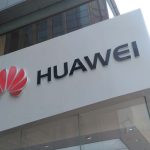From the Louisiana Attorney General’s memorandum in a motion to exclude an expert report, filed Friday in Netchoice v. Murrill (links added) (and see also the declaration from the AG’s expert analyzing the report, as well as the coverage from Friday on Bloomberg [Jacqueline Thomsen]):
NetChoice submitted Dr. Bean’s expert report to Defendants, along with the original sources on which he allegedly relied. While the original sources NetChoice produced exist, the substance of Dr. Bean’s report is fake. None of the 17 articles in Dr. Bean’s reference list exists, and his report never cites the actual sources NetChoice provided to Defendants. More, none of the 12 quotations that Dr. Bean’s report attributes to various authors and articles exists (even in the original sources provided to Defendants).
A cursory comparison between Dr. Bean’s report and the disclosed original sources would have alerted NetChoice that something is amiss. In fact, just reading Dr. Bean’s report would have done so. His reference list makes no sense, (a) citing website links that are dead or lead to entirely unrelated sources and (b) citing volume and page numbers in publications that are easily confirmed to be wrong. And his report itself is strangely formatted, not least because, well, it looks and reads like a print-out from artificial intelligence (AI).
Dr. Bean’s report bears all the telltale signs of AI hallucinations: completely fabricated sources and quotations that appear to be based on a survey of real authors and real sources. See, e.g., Brandon Fierro, Short circuit court: AI hallucinations in legal filings and how to avoid making headlines, Reuters (Aug. 4, 2025 8:27 AM), t.ly/inw31. It is difficult to escape the irony of a NetChoice expert submitting an expert report based on non-existent authorities and quotations. Yet here lies NetChoice—a loud proponent of “free expression” and “AI’s Transformative Power”—attempting to rely on such a report and such an expert in this litigation.
The upshot is straightforward—and other courts have been down this road before on materially identical facts. Dr. Bean’s reliance (under penalty of perjury) on entirely fake sources and quotations “shatters his credibility” beyond repair. Kohls v. Ellison, No. 24-CV-3754 (LMP/DLM), 2025 WL 66514, at *4 (D. Minn. Jan. 10, 2025).
Accordingly, at a minimum, Dr. Bean’s testimony must be excluded. More, NetChoice must bear the consequences of “citing to fake sources,” which “imposes many harms, including ‘wasting the opposing party’s time and money, the Court’s time and resources, and reputational harms to the legal system (to name a few).'” Id. at *5 (citation omitted). As the Kohls court ordered, this Court should exclude Dr. Bean’s testimony and prohibit NetChoice from submitting any amendment or supplement— and award the State Defendants reasonable fees and costs associated with uncovering this egregious problem and filing this motion….
[Long discussion of the errors in the report omitted. -EV]
If the detail here seems exhaustive, it is because the scale of fabrication demands it: Every quotation and citation in Dr. Bean’s report is fabricated. Far from obscure errors, these would have been uncovered by even a cursory review of Dr. Bean’s report by NetChoice or its counsel. Yet no one did. Given this mountain of fabrication, Dr. Bean never could be deemed competent to offer reliable or credible expert testimony to this Court consistent with Rule 702. Accordingly, the Court should conclude that Dr. Bean’s testimony is irreparably unreliable….
I asked Netchoice and their counsel for a statement, and a Netchoice representative responded:
Our counsel confirmed that Dr. Bean’s final declaration discussed only source publications that were explicitly provided to the Attorney General. When our team submitted Dr. Bean’s declaration, all of the source publications from which each and every assertion in the body of the report were also provided to the AG. To be clear: None of the source publications discussed in the body of the report or produced to the AG were hallucinated by AI. All publications were provided to the AG at the same time as the report. [See all the source publications here]
However, after providing the presumptively final version, our counsel requested that Dr. Bean make a minor change to his declaration to add a paragraph to disclose his hourly compensation. Dr. Bean then accidentally sent us a different version that misattributed Dr. Bean’s summaries of publications as quotations from the authors of those publications. Our team should have caught that before sending it to the AG.
Of the quotations that the AG said were “fabricated,” these should have been described as Dr. Bean’s statements about actual publications and findings by others. In the version submitted to the AG, these statements were incorrectly shown as quotes from the authors of those publications.
The references section of Dr. Bean’s declaration contained errors on authors, article titles and publications that neither we, nor our outside counsel, discovered in our review of the report. Nonetheless, all of the true and correct publications supporting Dr. Bean’s conclusions were provided to the AG at the same time as the report. [See all the source publications again here]
We’re disappointed in this situation but remain confident in our case challenging the constitutionality of Louisiana SB 162. This was the first time we used Dr. Bean as an expert in one of our cases. We wish we would have had the opportunity to resolve this issue directly with the AG’s office, and had we known of Dr. Bean’s misattributions, we would have withdrawn his declaration because it did not meet our standards.
For your information, we are going to drop Dr. Bean as an expert and will withdraw his declaration, in our response to the state’s motion to exclude his declaration.
Like courts around the country, this court requires that both sides engage directly to resolve questions about discovery, in good faith, amicably, and without unnecessarily burdening the court, [see Federal Rules of Civil Procedure, 37a]. We’ve met several times with the AG in this case, regarding various aspects of discovery–including just last Wednesday about Dr. Bean’s expert deposition–but at no time did the AG’s office raise their concerns about Dr. Bean’s declaration so that we could resolve their concerns. Instead, the AG filed a motion with the Court and placed a sensational media story, despite none of the source publications discussed in the body of the report or produced to the AG being hallucinated by AI.
Again, if the AG had followed proper procedure as laid out in the federal rules of civil procedure and made us aware of Dr. Bean’s misattributions, we would have withdrawn his declaration.
NetChoice remains confident that Louisiana’s law is unconstitutional and will ultimately be struck down. Indeed, when assessing similar law, Justice Kavanaugh said that NetChoice is likely to succeed in demonstrating that age-verification for social media is “likely unconstitutional.”
We look forward to challenging SB 162 in court.
I followed up with this:
Thanks for the very prompt response, and I entirely appreciate that the source publications produced to the AG were real. I also appreciate the possibility of version control errors.
Still, I wanted to ask some follow-up questions that I expect our readers would have—and that the judge will likely have as well.
- Can you pass along, please, a copy of the presumptively final version of the report that you folks were prepared to file before the request to add the paragraph about compensation?
- Do you have a sense of why any version would misattribute the expert’s own summaries of the publications as quotations from the authors of those publication? I’ve never heard of that happening before; I’ve heard of people saying (in controversies about alleged plagiarism) that others’ text was apparently copied into a file and quotation marks were inadvertently omitted, but I’ve never heard of quotation marks being inadvertently added by a person to represent his or her own work as someone else’s. Is the reason for those quotation marks that those quotes were generated in part by [generative] AI, which is indeed known for sometimes erroneously putting its own output into quotation marks?
- Do you have a sense of why the author, article title, and publication names cited in the declaration were so comprehensively erroneous? The obvious explanation is that the report was prepared in part using AI, and the citations were hallucinated—is that the correct explanation?
Netchoice’s representative responded:
On the first [question], unfortunately, as this case is still in active litigation, we cannot share the prior version of the report.
On the second and third, we do not have any additional insight as to why or how these errors arose.
Regardless of how these errors came about, when they were brought to our attention, we determined the report was not up to our standards and have severed our relationship with Dr. Bean as a result.
The post Apparent Massive Quotation/Citation Errors in Netchoice Expert’s Report … appeared first on Reason.com.







